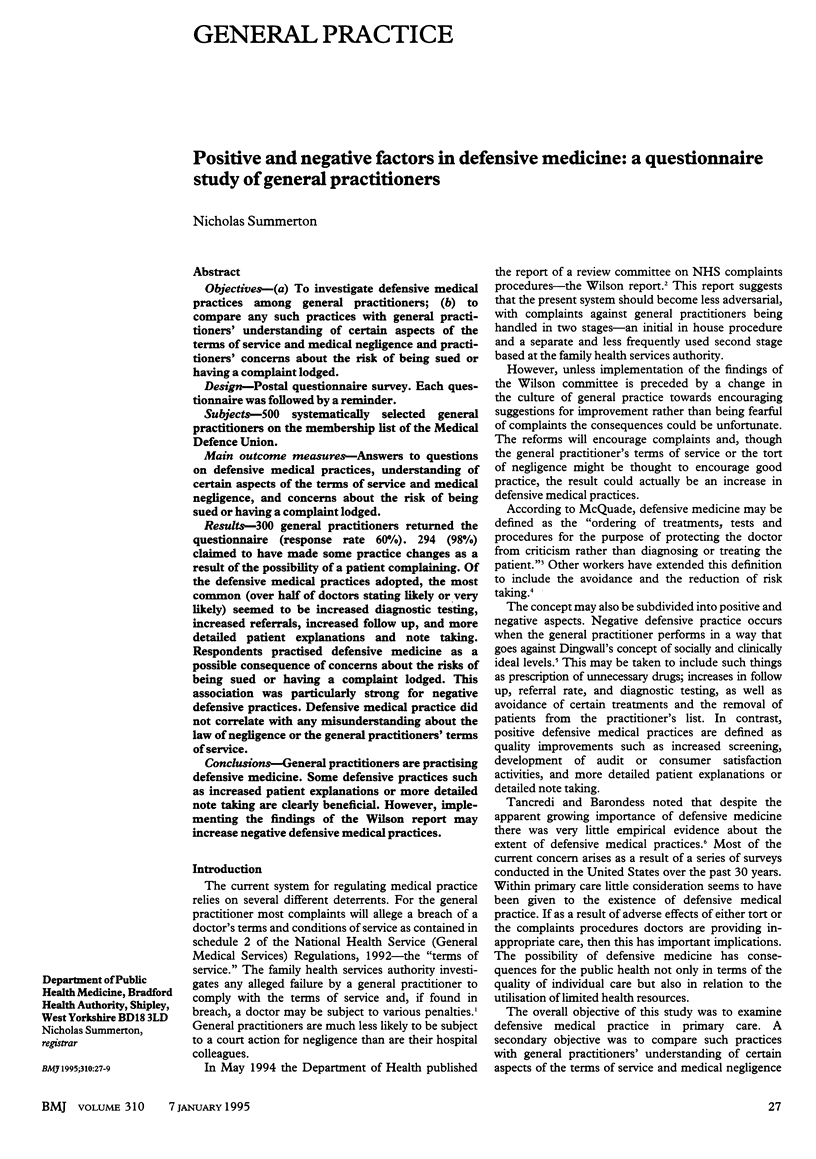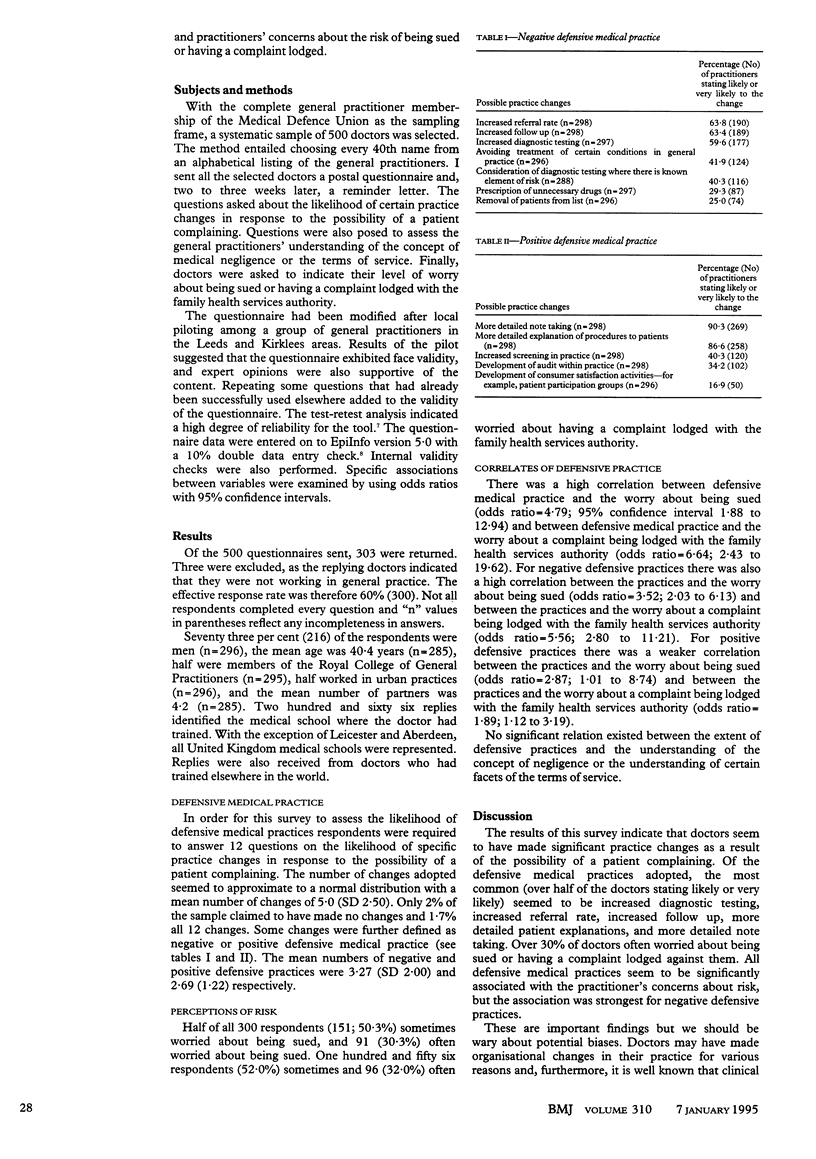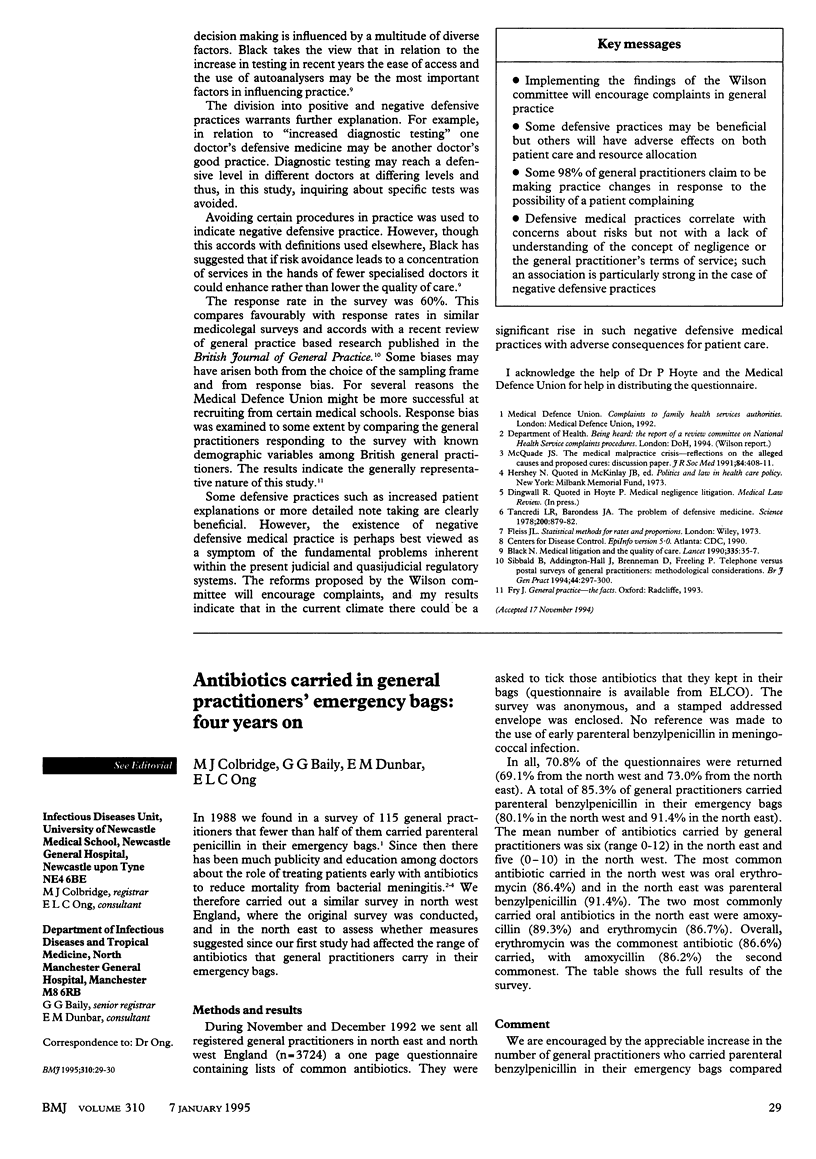Abstract
OBJECTIVES--(a) To investigate defensive medical practices among general practitioners; (b) to compare any such practices with general practitioners' understanding of certain aspects of the terms of service and medical negligence and practitioners' concerns about the risk of being sued or having a complaint lodged. DESIGN--Postal questionnaire survey. Each questionnaire was followed by a reminder. SUBJECTS--500 systematically selected general practitioners on the membership list of the Medical Defence Union. MAIN OUTCOME MEASURES--Answers to questions on defensive medical practices, understanding of certain aspects of the terms of service and medical negligence, and concerns about the risk of being sued or having a complaint lodged. RESULTS--300 general practitioners returned the questionnaire (response rate 60%). 294 (98%) claimed to have made some practice changes as a result of the possibility of a patient complaining. Of the defensive medical practices adopted, the most common (over half of doctors stating likely or very likely) seemed to be increased diagnostic testing, increased referrals, increased follow up, and more detailed patient explanations and note taking. Respondents practised defensive medicine as a possible consequence of concerns about the risks of being sued or having a complaint lodged. This association was particularly strong for negative defensive practices. Defensive medical practice did not correlate with any misunderstanding about the law of negligence or the general practitioners' terms of service. CONCLUSIONS--General practitioners are practising defensive medicine. Some defensive practices such as increased patient explanations or more detailed note taking are clearly beneficial. However, implementing the findings of the Wilson report may increase negative defensive medical practices.
Full text
PDF


Selected References
These references are in PubMed. This may not be the complete list of references from this article.
- Black N. Medical litigation and the quality of care. Lancet. 1990 Jan 6;335(8680):35–37. doi: 10.1016/0140-6736(90)90151-t. [DOI] [PubMed] [Google Scholar]
- McQuade J. S. The medical malpractice crisis--reflections on the alleged causes and proposed cures: discussion paper. J R Soc Med. 1991 Jul;84(7):408–411. doi: 10.1177/014107689108400710. [DOI] [PMC free article] [PubMed] [Google Scholar]
- Sibbald B., Addington-Hall J., Brenneman D., Freeling P. Telephone versus postal surveys of general practitioners: methodological considerations. Br J Gen Pract. 1994 Jul;44(384):297–300. [PMC free article] [PubMed] [Google Scholar]
- Tancredi L. R., Barondess J. A. The problem of defensive medicine. Science. 1978 May 26;200(4344):879–882. doi: 10.1126/science.644329. [DOI] [PubMed] [Google Scholar]


